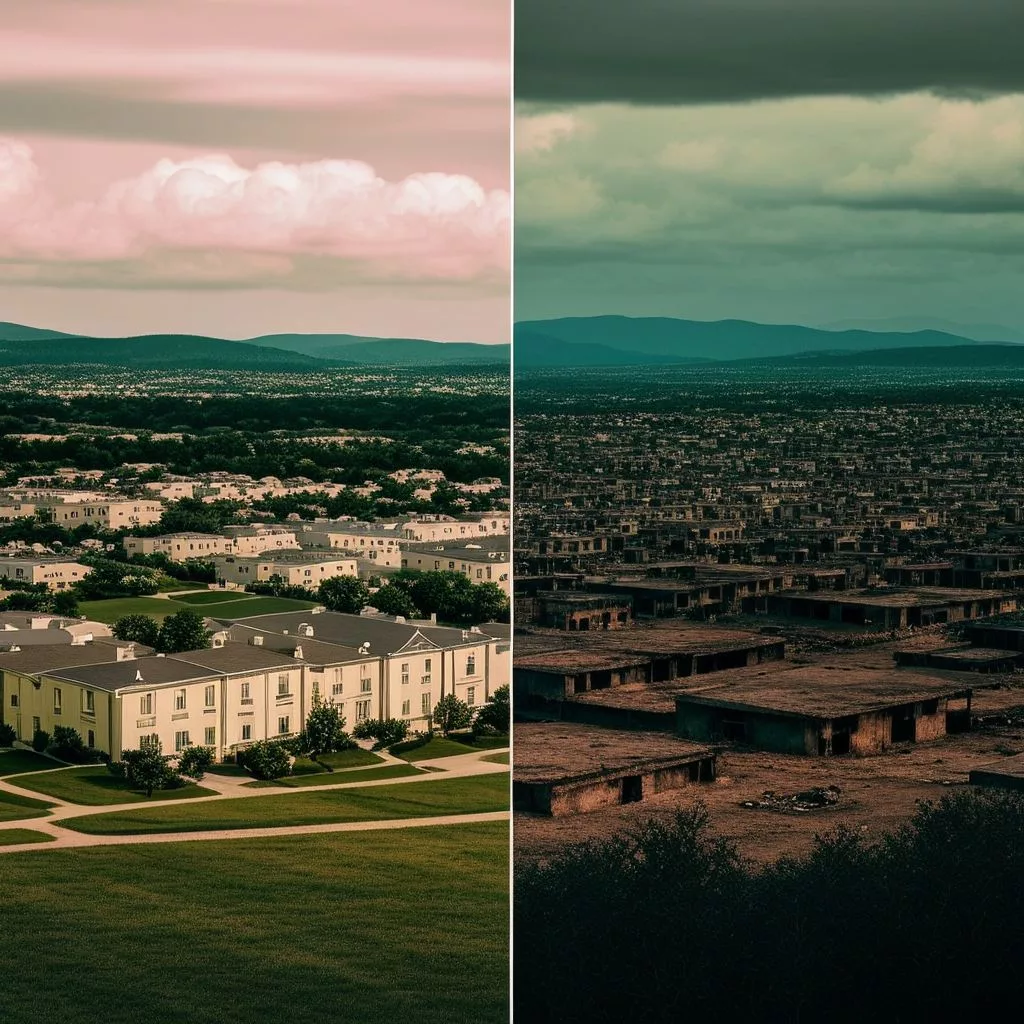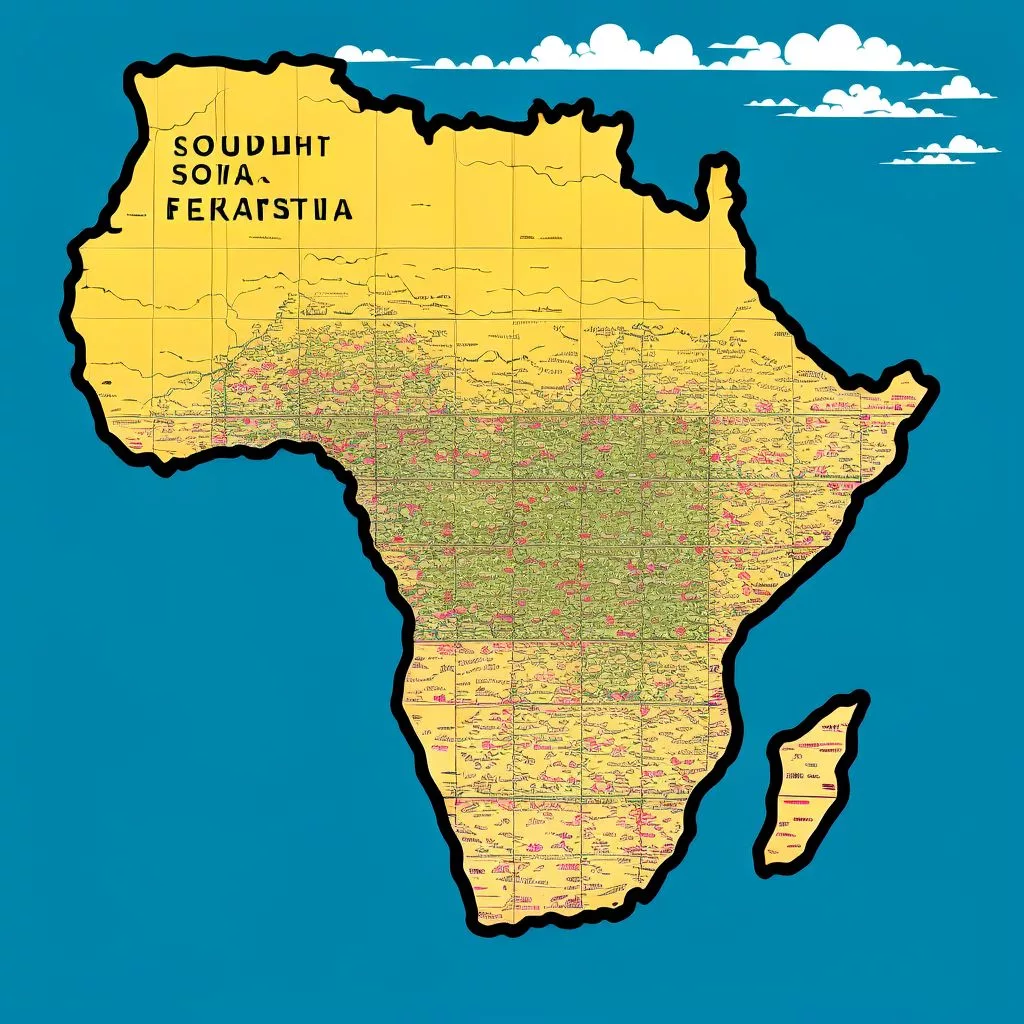South Africa is a beautiful country filled with strong communities, but many people face tough challenges that make them unhappy. High unemployment, crime, and corruption create a big gap between the rich and the poor, leading to distrust in the government. However, the warmth of generosity and support in communities can shine a light on a happier future. If South Africa can improve healthcare, promote fairness, and celebrate its rich culture, there’s hope for a more joyful nation where everyone can thrive.
What factors influence happiness in South Africa?
Happiness in South Africa is influenced by various factors, including economic stability, social support, life expectancy, freedom of choice, generosity, and trust in governance. Addressing issues like economic inequality, corruption, and healthcare access can significantly improve overall happiness and well-being in the country.
The Global Happiness Landscape
In the diverse spectrum of global happiness, South Africa finds itself ranked 95th out of 147 countries in the most recent World Happiness Report. This position, as highlighted by Cape {town} Etc, vividly illustrates a nation wrestling with economic struggles, social divides, and entrenched governance challenges. Compiled by the Wellbeing Research Centre at the University of Oxford, Gallup, and the UN Sustainable Development Solutions Network, the report evaluates global happiness based on essential life factors. As expected, Scandinavian countries occupy the top spots, with Finland, Denmark, Iceland, and Sweden leading the way, followed by the Netherlands. On the other end of the spectrum, countries such as Zimbabwe, Malawi, Lebanon, Sierra Leone, and Afghanistan face severe socio-economic challenges that significantly lower their happiness scores.
A Multifaceted Measure of Well-being
The ranking hinges on various factors, including economic prosperity, social support, life expectancy, freedom of choice, generosity, and public trust. A core metric in the study, the Cantril Ladder, prompts individuals to rate their life satisfaction on a scale of 0 to 10. Recent findings, drawing from data spanning 2022 to 2024, reveal stark contrasts between the happiest and most troubled nations. Developed countries generally fare well, while regions plagued by conflict, economic instability, and fragile social systems languish at the bottom. Yet, the data also underscores the uplifting impact of kindness—such as charitable donations, aiding strangers, and volunteering—on happiness levels. Communities with a culture of generosity tend to report higher overall life satisfaction.
Economic Challenges and Social Disparities
Despite the beautiful landscapes and strong community bonds, South Africa grapples with issues such as high unemployment, crime, and widespread corruption, which drag down its happiness ranking. A profound lack of trust in public institutions further diminishes overall life satisfaction. One telling indicator of this social disconnect is the country’s low rank in expected wallet returns, placing 105th globally. This signals a deep-seated distrust among citizens, in contrast to nations with stronger social bonds that typically enjoy higher happiness levels.
Economic Inequality and Social Gaps
Economic inequality in South Africa remains a significant challenge, worsening the overall happiness gap. The report indicates that the divide between the wealthy and the poor continues to grow, creating a polarized society where the affluent live comfortably while the underprivileged struggle to meet basic needs. High unemployment rates, particularly among the youth, exacerbate this disparity. The scarcity of job opportunities not only affects economic conditions but also undermines social cohesion and trust in institutions.
Governance and Corruption
Corruption is another formidable obstacle to happiness in South Africa. Pervasive corruption in public institutions erodes trust and hampers progress. The misappropriation of public funds for private gain results in inadequate public services, deepening citizens’ dissatisfaction. Transparency International’s Corruption Perception Index often ranks South Africa poorly, reflecting the widespread nature of this issue. Addressing corruption and improving governance could significantly enhance public trust and overall happiness.
Healthcare and Well-being
Healthcare remains a pivotal factor in determining happiness, and South Africa faces considerable challenges in this domain. The country struggles with high incidences of diseases such as HIV/AIDS and tuberculosis, which strain the healthcare system. Limited access to quality healthcare services exacerbates these issues, affecting life expectancy and overall well-being. Strengthening the healthcare system and ensuring equitable access to medical services are crucial steps towards improving the nation’s happiness.
Social Cohesion and Community Support
Interestingly, the report underscores the importance of social bonds and community support in enhancing happiness. Nations like Mexico and Costa Rica have demonstrated positive growth, with strong family values and community support contributing to their upward trajectory. South Africa, despite its challenges, possesses a resilient community spirit that could serve as a foundation for improvement. Fostering a culture of unity and support could pave the way for a more hopeful and satisfied nation.
The Power of Generosity
Generosity significantly influences happiness levels, according to the data. Acts of kindness, whether through charitable donations, helping strangers, or volunteering, contribute to a sense of fulfillment and life satisfaction. Societies that prioritize generosity and support tend to report higher happiness levels. In this context, nurturing a culture of generosity within South African society could have a profound impact on national happiness.
Strategic Reforms for a Brighter Future
Experts suggest that targeted policy reforms could markedly improve South Africa’s happiness ranking. Addressing economic inequality through job creation and fair wealth distribution is essential. Combatting corruption and enhancing transparency in governance can restore public trust. Strengthening healthcare systems to ensure access to quality services for all citizens is crucial. Further, fostering social bonds and community support can create a more cohesive and supportive society.
Education as a Catalyst for Change
Education also plays a pivotal role in shaping a nation’s happiness. Enhancing the quality of education and ensuring equal access for all can empower individuals, reduce poverty, and promote social mobility. Investing in education can develop a knowledgeable and skilled workforce, driving economic growth and improving overall well-being.
Cultural and Artistic Value
South Africa’s rich cultural and artistic heritage can also play a role in enhancing national happiness. The country’s history, marked by resilience and triumph over adversity, serves as a testament to its potential for growth and improvement. Celebrating and preserving cultural and artistic expressions can foster a sense of identity and pride, contributing to overall happiness.
In essence, while South Africa faces significant challenges, there exists a pathway to a brighter, more joyful future. By addressing economic disparities, combatting corruption, improving healthcare, fostering social bonds, and nurturing a culture of generosity, South Africa can climb the happiness ladder. The journey requires concerted efforts from all sectors of society, but the destination—a happier, more unified nation—is undoubtedly worth striving for.
“`markdown
FAQ
What factors influence happiness in South Africa?
Happiness in South Africa is influenced by a variety of factors, including economic stability, social support, life expectancy, freedom of choice, generosity, and trust in governance. Improving issues such as economic inequality, corruption, and healthcare access can significantly enhance overall happiness and well-being in the country.
How does South Africa rank in global happiness compared to other countries?
According to the most recent World Happiness Report, South Africa is ranked 95th out of 147 countries. This ranking reflects the ongoing economic struggles, social divides, and governance challenges faced by the nation, contrasting with the higher rankings of Scandinavian countries that consistently top the list.
What are the main economic challenges affecting happiness in South Africa?
South Africa faces significant economic challenges, including high unemployment rates, particularly among the youth, widespread corruption, and economic inequality. These issues contribute to a polarized society where the wealthy enjoy comfort while the underprivileged struggle to meet basic needs, ultimately dragging down the overall happiness ranking.
How does corruption impact happiness in South Africa?
Corruption in South Africa undermines trust in public institutions and hampers progress. The misappropriation of public funds leads to inadequate public services, resulting in widespread dissatisfaction among citizens. Addressing corruption and enhancing governance could greatly improve public trust and overall happiness.
What role does healthcare play in the happiness of South Africans?
Healthcare is a critical factor in determining happiness in South Africa. The country grapples with high incidences of diseases such as HIV/AIDS and tuberculosis, alongside limited access to quality healthcare services. Strengthening the healthcare system and ensuring equitable access to medical services are crucial steps toward improving national happiness.
How can community support and generosity boost happiness in South Africa?
Community support and acts of generosity significantly enhance happiness levels. Societies that prioritize kindness—through charitable donations, volunteering, and helping others—tend to report higher life satisfaction. Fostering a culture of generosity and social cohesion in South African communities can help pave the way for a more joyful and united nation.
“`












